Audio available in app
Synesthesia is a blending of sensory experiences from "summary" of Phantoms in the Brain by V. S. Ramachandran
In the strange world of synesthesia, the senses become intertwined, blurring the lines between what we see, hear, taste, touch, and smell. When a synesthete hears a sound, they might also see colors dancing before their eyes, as if the auditory experience has spilled over into the visual realm. Similarly, tasting a particular food might evoke a sensation of texture on the skin, creating a multisensory tapestry that is both bewildering and fascinating. This blending of sensory experiences goes beyond mere associations or memories - it is a fundamental rewiring of the brain that allows for the simultaneous activation of different senses in response to a single stimulus. For synesthetes, the world is a kaleidoscope of sensations, where the boundaries between the senses are porous and fluid, leading to a rich and complex tapestry of experiences that most of us can only imagine. One of the most intriguing aspects of synesthesia is its variability - no two synesthetes experience the same sensations in exactly the same way. Some might see colors when they hear music, while others might taste flavors when they read words. The diversity of synesthetic experiences is a testament to the incredible flexibility and plasticity of the human brain, which can create novel connections between different sensory regions in response to unique environmental and genetic factors.- It offers a glimpse into the inner workings of the brain and the complex interplay of sensory systems that underlie our perception of the world. By studying synesthesia, researchers can gain valuable insights into how the brain processes and integrates information from the environment, shedding light on the mechanisms that shape our conscious experience of reality. Ultimately, synesthesia challenges our understanding of the brain and the nature of perception, inviting us to question the boundaries of our sensory experience and the ways in which the mind constructs the world around us.


